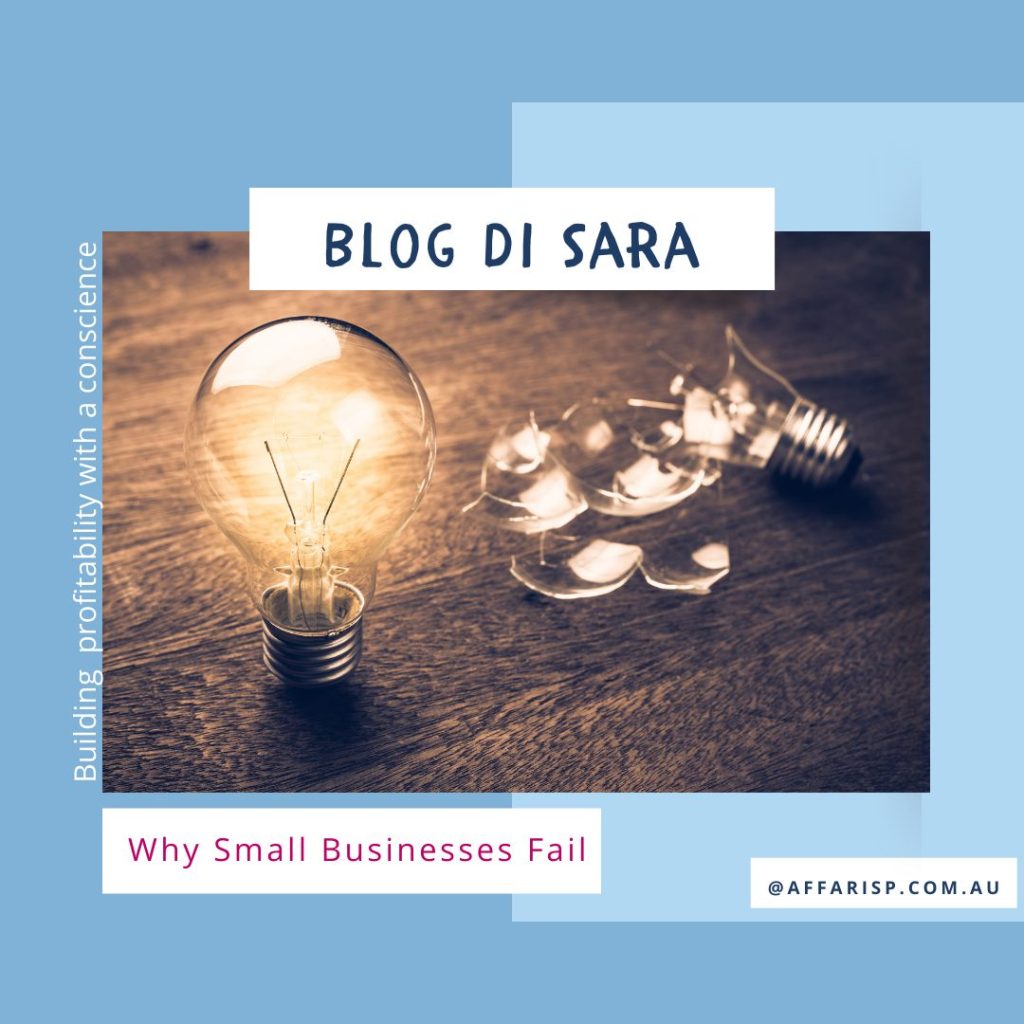Studies have shown a high percentage of small businesses fail in their first year and up to 50% by year five. 70% of small businesses don’t make it past ten years.
Some Reasons why small businesses fail
1) Lack of leadership – No vision and purpose
Setting a clear vision and purpose gives you a guiding light and clear road from who you are and where you want to go.
When you don’t have a clear vision, creating the path to success is challenging, like not having a rudder.
2) Market research and niche – do not know who the ideal client is
Not knowing who your ideal client means that you will try to attract and serve everyone. This is like using a fishing rod to catch a shark, and you will not catch anything. The clearer you are about your ideal client, the higher the chance of reaching the people you want to serve.
3) Poor management and planning
Setting clear strategic goals and business plans aligned with your vision will ensure you can develop precise financial forecasts around your ideal client.
Your plan sets out where you are, where you want to go and how to get there. Ensure your goal is realistic and executable with the resources you have.

4) Marketing
You need a clear marketing plan identifying how you are going to attract your prospective client. You should also have a marketing budget and track the return on investment for each channel to know what is working and what is not.
5) Lack of making decisions or no action
You have to get things done. But, don’t get so caught up in the process and become unable to make decisions.
Anything that prevents you from executing will lead to failure. At some point, you have to decide and move on. It’s better to make a decision and not get it perfect than not acting.
6) No commitment to innovation and continuous development
Successful business owners are constantly looking for new and better ways to serve clients and develop new opportunities.
They research and become aware of the latest trends. As a result, they are continuously innovating and finding new ways to be more efficient and increase productivity and stay abreast of changing consumer behaviour in their industry.
7) Knowing how to sell and follow-up
Lack of follow-up is a definite way to lose clients and not get referred to new ones.
Have a clear process on how you will be attracting new clients and the following up—making phone calls, responding to e-mails, or delivering a product or service.
Make sure that you track that you are delivering on time. Creating long-term customer relationships and building trust comes with knowing when to follow up.

8) Poor governance and consistency
Setting up structure, systems and processes, areas of accountability are critical to achieving your strategic goals. Some of the governance in business is to comply with laws in your industry, but small businesses in a partnership should consider strong shareholders agreements. If in a family business, a family business charter. Other considerations are separation of duties and authority to mitigate risks and being prepared—good crisis planning to anticipate the impact of external factors, such as regulations or global trends.
Consistency is also essential. Many years ago, I learned that giving an excellent experience sometimes and a poor one sometimes creates doubt in the customers’ minds. So, it is better to provide a great experience all the time and commit to consistency.
It takes time to attract and nurture customers to build your business. So, it is best if you were committed to tracking and acting consistently to deliver the experience that will make and keep customers.
9) Do not understand or track financial performance
Setting budgets, cashflow forecasts and financial metrics and measuring your performance is vital to know where you are so that you can make solid and informed business decisions
A small business must set sales targets and understand the reasons when you do not achieve them.
As well as revenue and profit, you should know what is happening to cash flow and forecast according to peaks and trough cycles and understand the gap between paying suppliers and receiving funds from your customers.
Other critical financial metrics are the cost of goods, employee costs, operational expenses, debtor payment days and creditor payment days.
You must work with your accountant to set these up correctly and be consistent on how and when you measure so that you can see trends developing and you can act quickly.

How can small businesses succeed
So, success in small business is not by accident, but it is by planning and design. If you are starting, ensure that you do your research, plan, set your financial and non-financial goals and what success looks like if you achieve them. Start with good governance from the beginning.
So, if you are a successful small business, make sure you celebrate your successes and review your strategy, vision and purpose regularly to check that it resonates with the right here and now and into the future.
At the moment, one of the most significant focuses in society is climate change. Will your small business be ready? What research and analysis have you made in your business to ensure that you are planning for the future changes that deal with the impact of climate?
Showing leadership, setting a clear vision and strategy, strong governance and tracking performance, taking action and executing leads to small business success. The key is not to stand still and continuously evolve in line with your business growth to meet your customer’s needs of the day.










